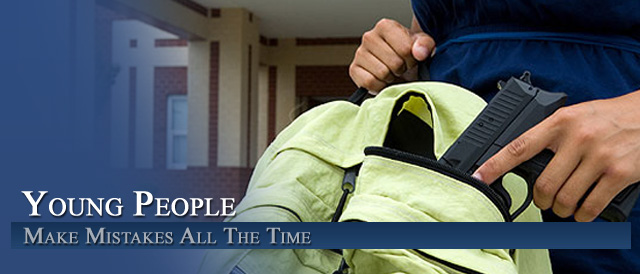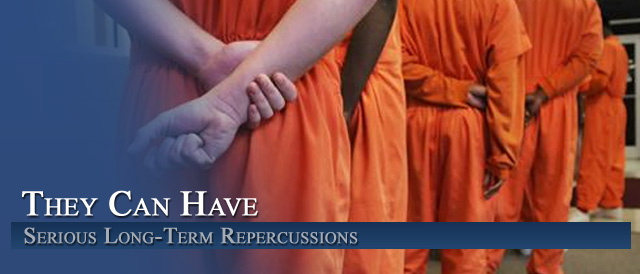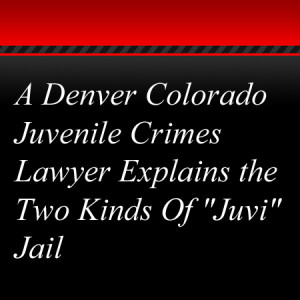




A Denver Colorado Juvenile Crimes Lawyer Explains the Two Kinds Of “Juvi” Jail
By H. Michael Steinberg Colorado Juvenile Crimes Criminal Defense Lawyer – Email the Author at [email protected]
 A Denver Colorado Juvenile Crimes Lawyer Explains the Two Kinds Of “Juvi” Jail – The most frightening call for a parent is – your child is in detention. At a sentencing hearing for a juvenile – it is a sentence to juvenile prison or jail that makes the heart sink.
A Denver Colorado Juvenile Crimes Lawyer Explains the Two Kinds Of “Juvi” Jail – The most frightening call for a parent is – your child is in detention. At a sentencing hearing for a juvenile – it is a sentence to juvenile prison or jail that makes the heart sink.
This brief article addresses the two kinds of “juvi” sentencing options that explain where you or your child will end up.
Two Kinds Of Juvenile Jails – DYC and YOS
Colorado, unlike many states, has two individual and completely separate systems for the detention (temporary jailing) or commitment after a sentencing in juvenile court (punishment for being “adjudicated a delinquent child” that is after being convicted of a juvenile crime).
The most recognized of these two systems is the Division of Youth Corrections (DYC) which falls under Colorado’s Department of Human Services (DHS). The equivalent of adult prison for juveniles in the Colorado juvenile justice system – is known as The Colorado Youthful Offender System (YOS). The Youthful Offender System (YOS) is part of the Colorado Department of Corrections (CDOC or DOC) and was created to house juvenile offenders convicted as adults for adult type felonies.
The call you receive in the middle of the night will most likely originate at one of the ten detention centers run by DHS.
I. The Colorado Division Of Youth Corrections (DYC)
Both of the two systems function to “detain” a nice word for incarcerate – provide “commitment” locations, “treatment services,” carry out sentencing requirements and function in the area of parole and release.
DYC has a dual function. DYC is not only responsible for operating juvenile detention facilities but it is required by Colorado law to “provide for the care and supervision of youth committed by the District Court to the custody of the Colorado Department of Human Services.”
DYC has ten facilities that incarcerate children between 10-18 who:
1. Are awaiting resolution of their criminal cases – known as “pre-adjudicated” juveniles
2. Have been sentenced to a term of incarceration “committed” to detention for a period of time permitted under Colorado law.
Colorado’s Detention (Juvenile Jail) Facilities – Detention
If you or your child is awaiting trial and have not bonded or been permitted to post a bail bond – – you will be placed in a “Detention Facility intended for youth awaiting trial.
On the other hand – if you or your child has been sentenced by a Juvenile Court Judge as punishment for the crimes committed – then you may be sentenced to one of these facilities for no longer than 45 days for crimes. This sentence includes the failure to comply with court ordered sanctions or for a failure to appear in court (an FTA).
Colorado’s “Detention” In Juvenile Jail Facilities – Compared To “Commitment”
The Detention Of Colorado Juveniles Pending Resolution Of Their Case
Pre-adjudicated or pre-trial youth or juvenile’s actually sentenced to detention are not “committed” to the Division of Youth Corrections.
Being placed in “detention” means being supervised either outside of the detention center in the community (such as with the parents of the child) or actually “remanding” or locking up a juvenile in a detention facility in “secure detention facilities’ operated by the Division of Human Services (DHS).
A process of evaluation that is used to make the decision of whether to detain a child inside or outside of a detention facility is named after the law that created the procedure – “Senate Bill 94.”
The Senate Bill 94 program provides services that are designed to make certain that charged – but not convicted – juveniles are placed in a setting “appropriate” to their risk to the community.
Children rarely need to be incarcerated pending resolution of their cases in my opinion and judge’s can usually be persuaded to monitor these juveniles in non-secure, community-based services such as day reporting, electronic home monitoring, and/or enhanced community supervision.
Comparing Temporary “Detention” To “Commitment” To The DYC
“Commitment facilities” can be different for juveniles actually convicted of “delinquent acts.”
If a Colorado juvenile judge “commits” a juvenile delinquent – upon “commitment” – the custody of the juvenile offender is “transferred” to DHS until the successful completion of the sentence.
The most common crimes for which a “commitment” to DYC is ordered are assault, burglary, trespassing, and theft. Depending on the classification of the juvenile offender – an example being a violent juvenile offender a year or more can be sentence. LINK to juvenile sentencing article https://www.colorado-juvenile-crimes-lawyer.com/colorado-juvenile-criminal-process-the-sentencing-decision/the-colorado-juvenile-criminal-sentencing-hearing-part-i-of-iii
After You Arrive For Your Sentence – The “Assessment”
After you arrive at a DYC facility – there is a 30-day assessment to establish a “treatment plan” for the juvenile. This “assessment” results in a report that recommends which services and programs such as:
- Counseling,
- Social development,
- Victim awareness
- Academic and vocational education,
- Heath care, and
- Community reentry services…
… are targeted to the juvenile offender’s needs.
During the “assessment process” a “cell score” is used to determine the level of the inmate’s security. The DYC utilizes a risk assessment called the Colorado Juvenile Risk Assessment or (CJRA). The idea behind this took is to identify the juvenile’s likelihood to re-offend.
The CJRA addresses 12 key areas that rank a youth’s risk to re-offend as high, moderate or low.
These areas include:
- Record of Referrals,
- Demographics,
- School History/Status,
- Use of Free Time,
- Employment,
- Relationship History,
- Family History/Current Living Arrangements,
- Alcohol and Drug History,
- Mental Health,
- Attitudes/Behaviors,
- Aggression and Skills
After Completion Of The DYC Sentence…
Following the completion of the sentence – juvenile offenders sentenced to DYC must also complete a six-month parole period. If the juvenile violates parole – like the adult system – it can be revoked and the juvenile re-incarcerated – or it can be “extended” for up to 15 months. These decisions are made by the Colorado Juvenile Parole Board.
During all of this time the juvenile parolee remains under the custody of DHS and will only be released upon successful completion of the parole programs. Placement decisions into the various facilities operated by DHS will depend upon the risk and treatment needs of the individual youth and range from staff-secure placements, to independent living programs and non-residential treatment.
The kinds of programs you can expect upon being committed to DHS are:
- Multi-systemic therapy,
- Functional family therapy,
- Individual and family therapy,
- Substance abuse counseling,
- Tracking,
- Mentoring,
- Offense-specific therapy,
- Independent living skills,
- Anger management skills,
- Parenting skills training and
- Linking the juvenile to “sustainable” community resources.
The DYC Assessment Process – A Closer Look
The Division of Youth Corrections uses a process that consists of applying a clinical assessment utilizing:
- Motivational interviewing techniques,
- An criminogenic risk and needs assessment,
- An alcohol and drug screening/assessment,
- A mental health screening/assessment,
- A psychological evaluation (as needed basis),
- Medical and dental screening/examination and
- Educational and vocational appraisals.
II. The Colorado Youthful Offender System (YOS)
The Youthful Offender System (YOS), part of DOC, provides incarceration for juvenile offenders convicted of adult felonies.
Juveniles can be charged as an adult and sentenced to the DOC in a process known as direct-file. Because the offenders are young, YOS is better able to offer services needed by juveniles than regular DOC facilities. Offenders are housed in a correctional facility in Pueblo designated to serve youthful offenders only.
The mission of the program is to provide an environment that promotes self-dignity through the value of work, self-discipline, and education for the betterment of the offender upon release.
If You Or Your Child Is Sentenced to the YOS.
The YOS program has three phases:
-
-
- The core period of the sentence (phase one);
- The last three months of the sentence (phase two);
- Community monitoring before the official release (phase three).
-
Originally the YOS system was designed for violent offenders between the ages of 14 and 18. In 2009 ANY youthful offender charged as an adult with a class 3 or class 4 violent felony who was between the ages of 18 and 19 at the time of the offense, may be sentenced to YOS.
However an offender sentenced in the YOS system MUST BE under 21 at the moment of sentencing to be admitted.
If you are sentenced in the YOS system – your sentence must be a minimum sentence of at least two years. The maximum sentence is capped at six years. Exceptions exist for convictions of class 2 felonies which increase the possible sentence to a cap of seven years.
Juvenile offenders sentenced in the YOS are most commonly adjudicated for crimes such as aggravated robbery, felony assaults and first and second degree burglary. The average age of YOS inmates is 18.5 years of age.
The risk always exists for YOS inmates that – like all CDOC offenders – they can be discharged from YOS and sentenced to actual adult prisons if they remain within the system beyond the age restriction or they are sentenced for another crime committed while they are serving in the YOS system.
Individualized plans for each inmate in YOS include treatment programs such as for mental health issues, substance abuse issues as well as juvenile sex offenders if the sentence can be served safely and the treatment modalities are available. Other programs include all phases of academic education (high school, technical education, and even Community College classes).
YOS – Phase II and III
Phase II and III of the YOS programs focus on the release of the offender.
Phase II begins in the last three months of an offender’s sentence as a pre-release phase focusing on preparing the offender for the transition to release by providing a support plan for community reintroduction and supervision.
After release, the YOS offender begins phase III during which the individual is monitored on parole for between six and twelve months in the community and receive support through state and local services in the areas of residency, employment, education, therapy, and reentry into the community.
Upon completion of the final phase – phase III, the offender is totally released from the custody of the State of Colorado Department of Corrections (CDOC).
What If You or Your Child Fails At YOS?
A YOS sentence is only available to a young defendant after a judge first imposes a sentence to the CDOC and then suspends that sentence on condition of successful completion of the YOS program. Section 18-1.3-407 (2) (a) (I) .
Under the YOS statute the YOS sentence does not replace the original CDOC sentence, rather, the CDOC sentence is “suspended” and the judge retains jurisdiction to issue its order revoking the YOS sentence and imposing the prison sentence.
A Denver Colorado Juvenile Crimes Lawyer Explains the Two Kinds Of “Juvi” Jail
If you found any information I have provided on this web page article helpful please click my Plus+1 button below so that others may also find it.
ABOUT THE AUTHOR: H. Michael Steinberg – Email The Author – A Denver Colorado Juvenile Crimes Criminal Defense Lawyer – or call his office at 303-627-7777 during business hours – or call his cell if you cannot wait and need his immediate assistance – 720-220-2277.
If you are charged with A Colorado crime or you have questions about A Denver Colorado Juvenile Crimes Lawyer Explains the Two Kinds Of “Juvi” Jail, please call our office. The Law Offices of H. Michael Steinberg, in Denver, Colorado, provide criminal defense clients with effective, efficient, intelligent and strong legal advocacy. We can educate you and help you navigate the stressful and complex legal process related to your criminal defense issue.
 H. Michael Steinberg, is a Denver, Colorado criminal defense lawyer with over 40 years of day to day courtroom experience – specializing in Colorado Criminal Law along the Front Range. He will provide you with a free initial case consultation to evaluate your legal issues and to answer your questions with an honest assessment of your options. Remember, it costs NOTHING to discuss your case. Call now for an immediate free phone consultation.
H. Michael Steinberg, is a Denver, Colorado criminal defense lawyer with over 40 years of day to day courtroom experience – specializing in Colorado Criminal Law along the Front Range. He will provide you with a free initial case consultation to evaluate your legal issues and to answer your questions with an honest assessment of your options. Remember, it costs NOTHING to discuss your case. Call now for an immediate free phone consultation.
Helping Clients To Make Informed Decisions In the Defense of Colorado Criminal Cases.
Contact A Lawyer with Three Decades of Experience as a Denver Criminal Attorney at The Steinberg Colorado Criminal Defense Law Firm today.
Colorado Defense Lawyer H. Michael Steinberg provides solid criminal defense for clients throughout the Front Range of Colorado – including the City and County courts of Adams County, Arapahoe County, City and County of Boulder, City and County of Broomfield, City and County of Denver, Douglas County, El Paso County – Colorado Springs, Gilpin County, Jefferson County, Larimer County, and Weld County,…. and all the other cities and counties of Colorado along the I-25 Corridor… on cases involving the topic of: A Denver Colorado Juvenile Crimes Lawyer Explains the Two Kinds Of “Juvi” Jail.
Other Articles of Interest:
- A Denver Colorado Juvenile Crimes Lawyer Explains the Two Kinds Of “Juvi” Jail – DYC and YOS
- If Your Child Is Arrested In A Colorado Juvenile Criminal Case – Some Tips For Parents From A Colorado Juvenile Criminal Defense Lawyer
- Sentencing – Persons Eighteen Years of Age or Older – County Jail – Community Corrections 19-2-910.
- In Colorado – Can The Police Question My Child Without My Permission?
- The Colorado Juvenile Criminal Sentencing Hearing – Part II of III













